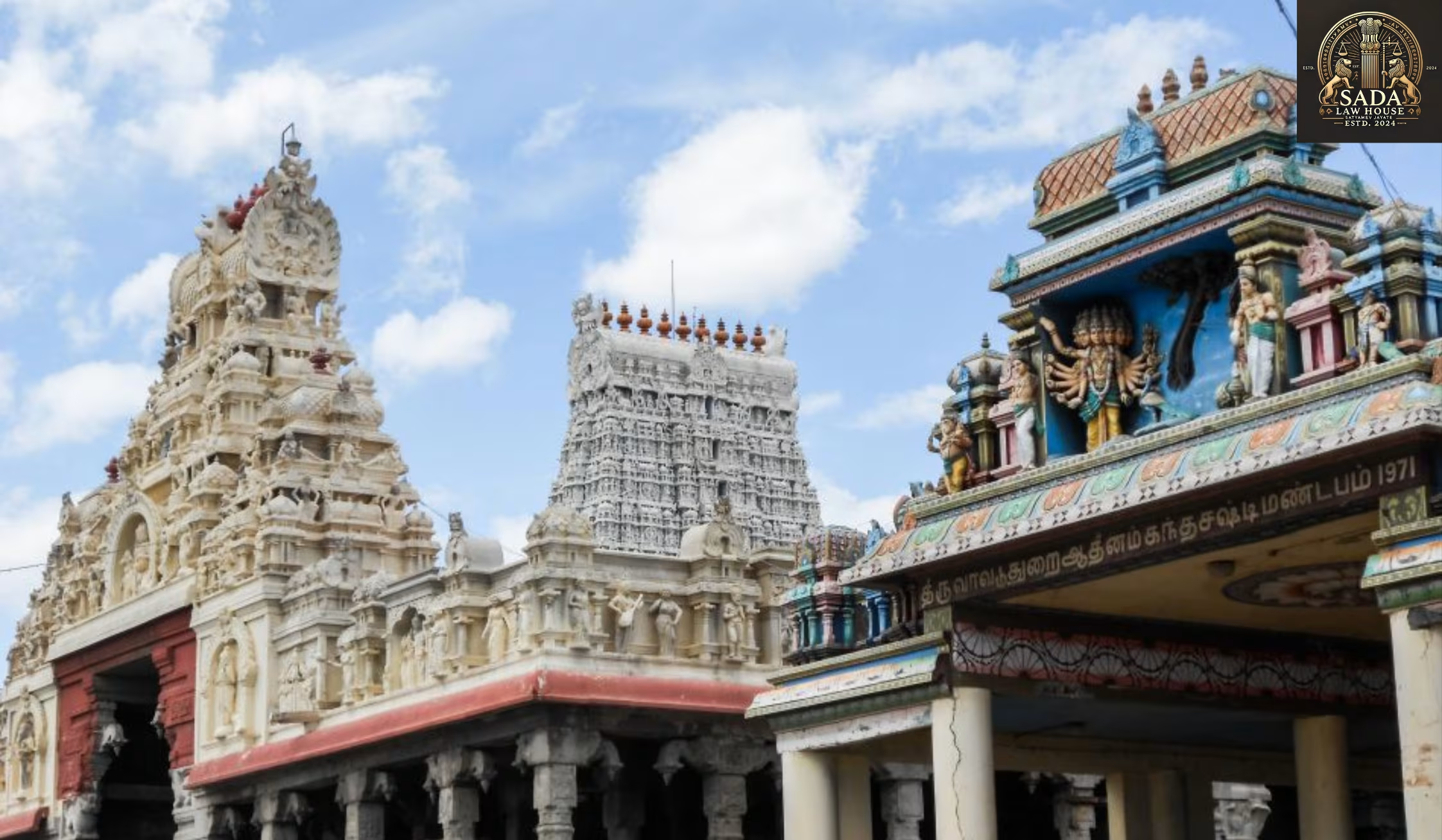Thiruchendur Temple Consecration Dispute: Vidhayahar Challenges HC-Approved Timing in Supreme Court
- PRABHAT KUMAR BILTORIA
- 27 June 2025

A high-stakes legal and religious conflict unfolds as the Vidhayahar of the Thiruchendur Temple challenges the High Court-approved timing of the 2025 Kumbhabhishekam in the Supreme Court. Learn how this case may redefine the balance between religious tradition and government control in India.
Vidhayahar of Thiruchendur Temple Petitions Supreme Court Over Kumbhabhishekam Timing
A major legal and religious dispute has arisen in Tamil Nadu over the upcoming Kumbhabhishekam (consecration ceremony) of the historic Arulmigu Subramaniya Swamy Temple in Thiruchendur. Scheduled for July 7, 2025, the event’s timing—approved by the Madras High Court—has been challenged by the temple’s hereditary authority, the Vidhayahar, who has escalated the matter to the Supreme Court of India.
Agama-Based Timing at the Heart of Dispute
The core issue centers around the ceremony’s timing. Based on sacred Agama scriptures, hereditary scholar and Vidhayahar R. Sivarama Subramaniya Sasthrigal designated the auspicious time between 12:05 PM and 12:45 PM. However, the Tamil Nadu Hindu Religious and Charitable Endowments (HR&CE) Department proposed an earlier slot from 6:00 AM to 6:47 AM.
In response to conflicting positions, the Madras High Court appointed a five-member expert panel, which eventually endorsed the state’s preferred morning schedule.
High Court Ruling Leads to Supreme Court Appeal
Though the High Court acknowledged the traditional authority of the Vidhayahar, it upheld the panel’s recommendation. In protest, Sasthrigal approached the Supreme Court, arguing that the panel’s creation infringed upon both his constitutional rights and the temple’s religious sanctity.
He also alleged bias among the expert members, citing their prior support of the government’s position.
Supreme Court Sets July 1 Hearing as Debate Intensifies
The case was formally taken up by the Supreme Court on June 25, 2025, with a detailed hearing scheduled for July 1. While the court refrained from issuing immediate relief, it permitted the Vidhayahar to pursue a review petition with the High Court.
This legal battle raises complex questions around the extent of government control over religious practices and the preservation of temple customs under the framework of the Indian Constitution.
Broader Implications for Religious Autonomy in India
As the sacred date approaches, all eyes are on the Supreme Court’s ruling, which could set a historic precedent for how India navigates religious freedom, temple autonomy, and state oversight. This case may reshape the future of ritual governance in not only Tamil Nadu but also across India.






